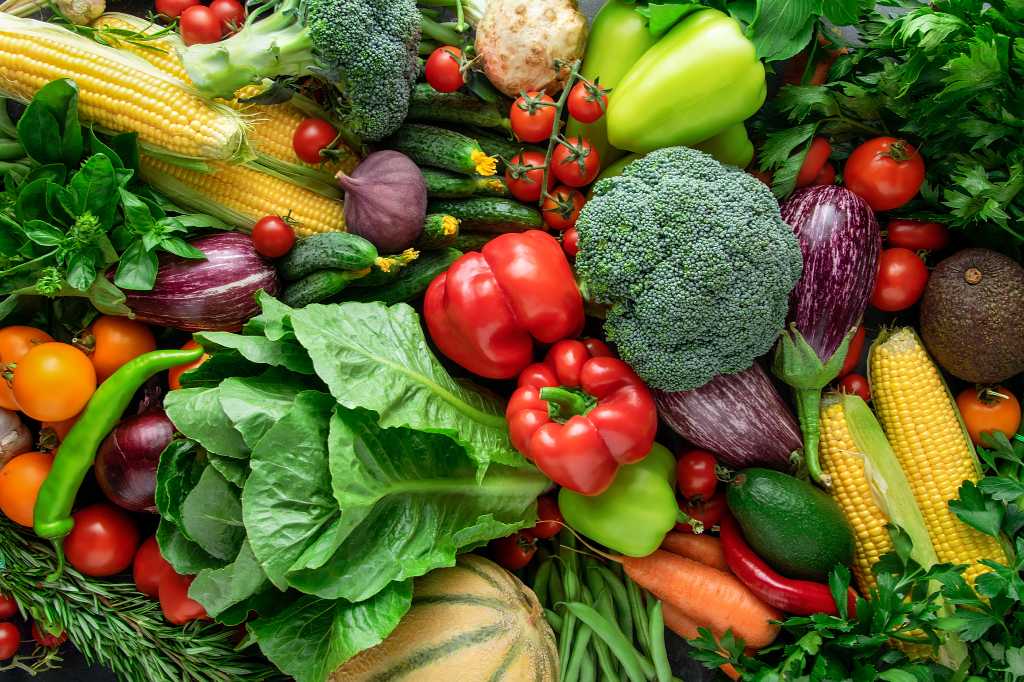
In a world inundated with choices, the quest for safe and nutritious food is paramount. The spotlight on the importance of eating healthy and safe food has never been brighter, especially in the post-pandemic era.
The organic food movement has emerged as a beacon of health consciousness, capturing the hearts and minds of individuals seeking a natural and sustainable way of nourishing themselves. One of the key tenets of organic farming is – no usage of chemical pesticides and chemical fertilisers. It comes as a scary reminder – over 25 rounds of chemical pesticides can be sprayed on vegetables like cauliflower and cabbages and residues can remain for over 45 days after harvest. Some of the chemicals used in chemical fertilisers could be hazardous to our health in the long term.
As an organic farm brand deeply rooted in the principles of sustainable agriculture, we embark on a journey to unravel the questions surrounding organic foods: Are they truly safer and more nutritious? Join us as we delve into the compelling aspects of organics and uncover the truth that lies within.
Safety Beyond Pesticides
One of the cornerstones of organic farming is the commitment to eschew synthetic pesticides, herbicides, and genetically modified organisms (GMOs). Organic crops are nurtured in chemical pesticide-free environments, allowing them to flourish without the chemical residues that often coat conventionally grown produce. By choosing organic foods, you embrace a safer alternative, reducing the risk of exposure to potentially harmful chemicals. From farm to table, the organic approach prioritises your well-being and the well-being of the planet.
At Happy Harvest Farms, we only work with organic-certified farms and farmers. We conduct periodic soil and water checks to ensure that the farms we work with are truly organic. All our produce is certified organic. Only natural pesticides and natural fertilisers are used on the farms. Our farmers use methods like:
- Crop rotation: This prevents the pests from getting use to a particular type of crop
- Using other pests to fight pests
- Use of sticky traps
- Practices like mulching, hand pulling of weeds, spraying water to remove the surface infestation
- Use of organic pesticides made with ingredients like need, cow urine etc
Nutrition at its Peak
The nutrition debate between organic and conventional foods has been a topic of discussion for years. While there are yet to be 100% conclusive studies, broad-brush research indicates that organic foods can boast higher levels of certain nutrients and antioxidants. What contributes to this? It is important to note here that key tenets of organic farming such as soil quality, crop diversity, and farming practices play a pivotal role in contributing to the increased nutritional content found in organic produce. For instance, some studies have suggested that organic fruits and vegetables tend to have higher levels of vitamin C, iron, magnesium, and phosphorus. Embracing organic foods offers the chance to maximise your nutrient intake and fuel your body with the best that nature has to offer.
At Happy Harvest Farms all our produce is certified organic. We only work with organic farms and farmers. No chemical pesticides or chemical fertilisers are used.
Preserving Vital Nutrients
Beyond higher nutrient content, organic farming techniques prioritise soil health and diversity, which have a profound impact on the vitality of crops. A well-nourished soil teems with essential microorganisms that aid in nutrient absorption, ultimately enhancing the nutritional value of the produce.
One of the pillars of organic farming is to use organic manure and fertilisers free of chemicals. Practices like using panchagavya (organic mixture made using five ingredients) and jeevanamrutha (natural liquid fertilisers) are followed. All this contributes to soil health, increasing its fertility. The result? Fresh, 100% organic fruits and vegetables!
In contrast, conventional farming practices, often reliant on synthetic fertilizers, can deplete soil of its natural richness over time. By opting for organic foods, you contribute to the preservation of vital nutrients within the soil, fostering a cycle of sustainable nourishment.
Flavour in Abundance
The distinct flavour profile of organic foods is a testament to their robustness and authentic growth. Organic crops are allowed to ripen naturally, undisturbed by growth-enhancing chemicals. This results in produce that bursts with flavour and aroma, a far cry from the sometimes bland offerings of conventionally grown counterparts. The harmony between organic farming methods and the natural growth cycle amplifies the taste experience, allowing you to savour the true essence of each fruit and vegetable.
The journey through the world of organic foods unravels a tapestry woven with threads of safety, nutrition, flavour, and environmental stewardship. From the absence of harmful chemicals to the nutrient-rich soil and the vibrant flavours that dance on your palate, organic foods emerge as a holistic choice that extends beyond the dinner plate. As an organic farm brand, we at Happy Harvest Farms stand firm in our commitment to cultivating foods that nurture not only your body but also the planet we call home.